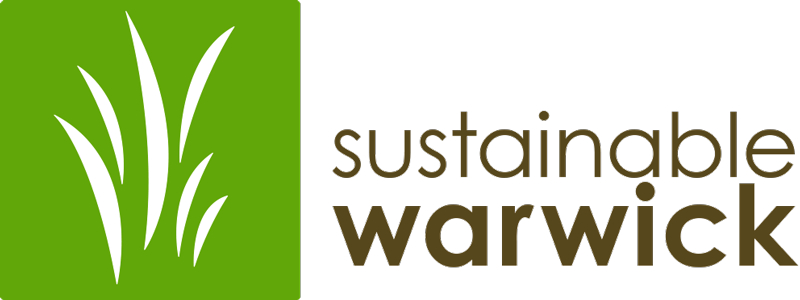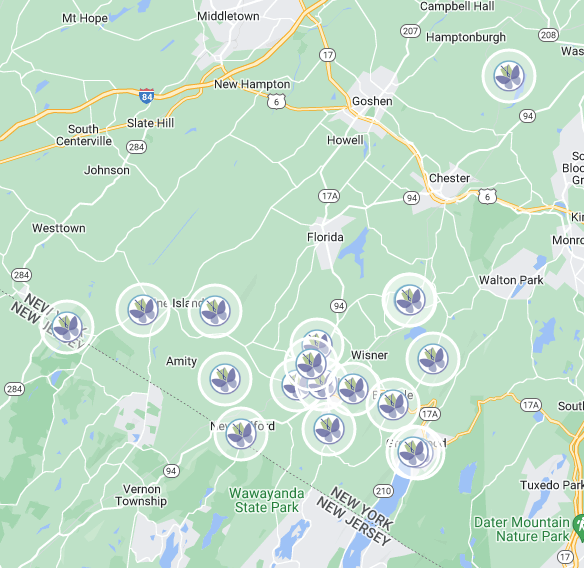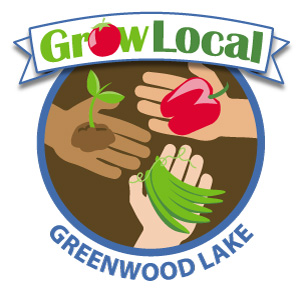Sustainable Warwick Pollinator Pathway Committee
The Sustainable Warwick Pollinator Pathway Committee actively promotes pesticide-free native habitats to support pollinator proliferation in the Warwick Valley. Our “Pollinators Welcome” signs are now ubiquitous around town!
Want to get a sign or two?
Purchase these signs at Corwin Florist, 12 Galloway Road, Warwick or Goodmaker Acres, 246 Pine Island Turnpike, Warwick or email us pollinators@sustainablewarwick.org for details.
Interested in volunteering?
Want to spend time outside, working with your hands, as part of a volunteer team? We welcome participants of all skill levels. We’d love to have you lend a hand.
Our activities include:
🦋 Holding monthly work days at Mountain Lake Park
🐝 Planning a native plant garden for the park
🐝 Removing invasive plants
🐝 Having fun messing around
🦋 Promoting the Warwick Valley Plant Native Alliance
🦋 Conducting public workshops, webinars, films and other presentations
🦋 Advocating for pesticide and herbicide reduction
Contact us via email at pollinators@sustainablewarwick.org to get involved. Check our events calendar for upcoming dates!
What is a Pollinator Pathway?
The Sustainable Warwick Pollinator Pathway is part of a grassroots movement focused on reducing/eliminating pesticide use and establishing pollinator-friendly habitat and food sources for bees, butterflies, hummingbirds and other pollinating insects and wildlife along a series of continuous corridors.
Join the Sustainable Warwick Pollinator Pathway - Take the Pledge!
Why do we need to promote pollinators?
We have a declining bird, bee and insect population in Warwick. Our local birds depend on our local insects for food. Local insects need native plants to reproduce. It is simple, we need to grow fewer foreign species, reduce our sterile lawns, cut down on the use of herbicides and pesticides and plant more natives plant species.
Why are Native Plants essential to the lifecycle of pollinators?
Native plants are important because they provide high quality food and shelter for native pollinators, birds, and other animals. These plants and animals have evolved to depend on each other for survival. Some of these insects and birds have evolved to only use specific native plants—for example, monarch butterflies will only lay their eggs on milkweed plants.
Why are native plants important to the Warwick Valley bird population?
Native plants attract beneficial insects and their larvae (e.g. caterpillars), which is a critical food source for most terrestrial bird species. 96% of North America’s terrestrial bird species feed their young insects, insect larvae, and spiders. Habitat that is rich in native plants is essential for supporting these insects and the birds that consume them. Non-native plants fall far short by comparison. For example, researches have found that native Flowering Dogwood supports 117 species of butterflies and moths, compared to the non-native Kousa Dogwood (from China), which supports zero.
How can I join the Sustainable Warwick Pollinator Pathway?
To join our volunteer efforts, email us at pollinators@sustainablewarwick.org. You can buy a sign, or add your garden to our Pollinator Pathway map by clicking the Add Your Garden button
To find resources on planning a pollinator garden see the links at the bottom of this page.
Everyone can join the effort by avoiding the use of pesticides and lawn chemicals and planting native, pollinator-friendly plants (lists of native pollinator plants available here). Residents can add anywhere from one pollinator-friendly tree or planter, to a small pollinator garden, to a full meadow. Achieving and displaying connectivity is important to the success of our project, please include your street address to be added to the map (Your name will not be visible on the map).
Member’s Photos - Click the button to share photos of your garden! We especially love to see photos that also have butterflies, bees, hummingbirds or other pollinators enjoying the fruit of your labors. Please include a description, location, and your name.
Click on the photos in the gallery below to see the full size image.
Click the images below to learn more! A wealth of information is also available at pollinator-pathway.org.
Join the Warwick Valley Pollinator Pathway
“I pledge to avoid the use of pesticides and lawn chemicals and intend to plant native, pollinator-friendly plants.”
Click on the map below to see the “growing” Pollinator Pathway in the Warwick Valley.
Get a sign for your garden!
Click the button below and send us an email. We will get back to you with information about price and where to pick them up!
More Pollinator Resources:
Questions or Comments?
Please contact us using this form and we will get back to you!













































